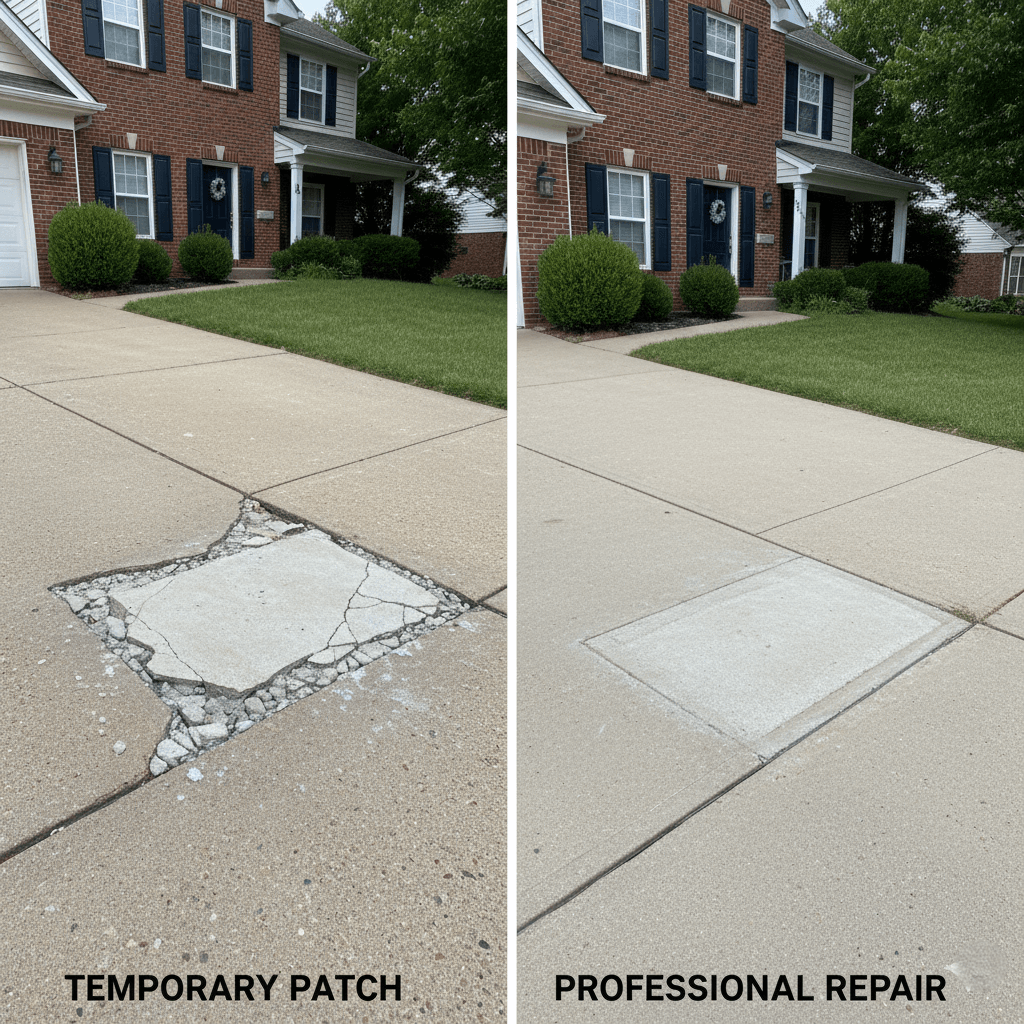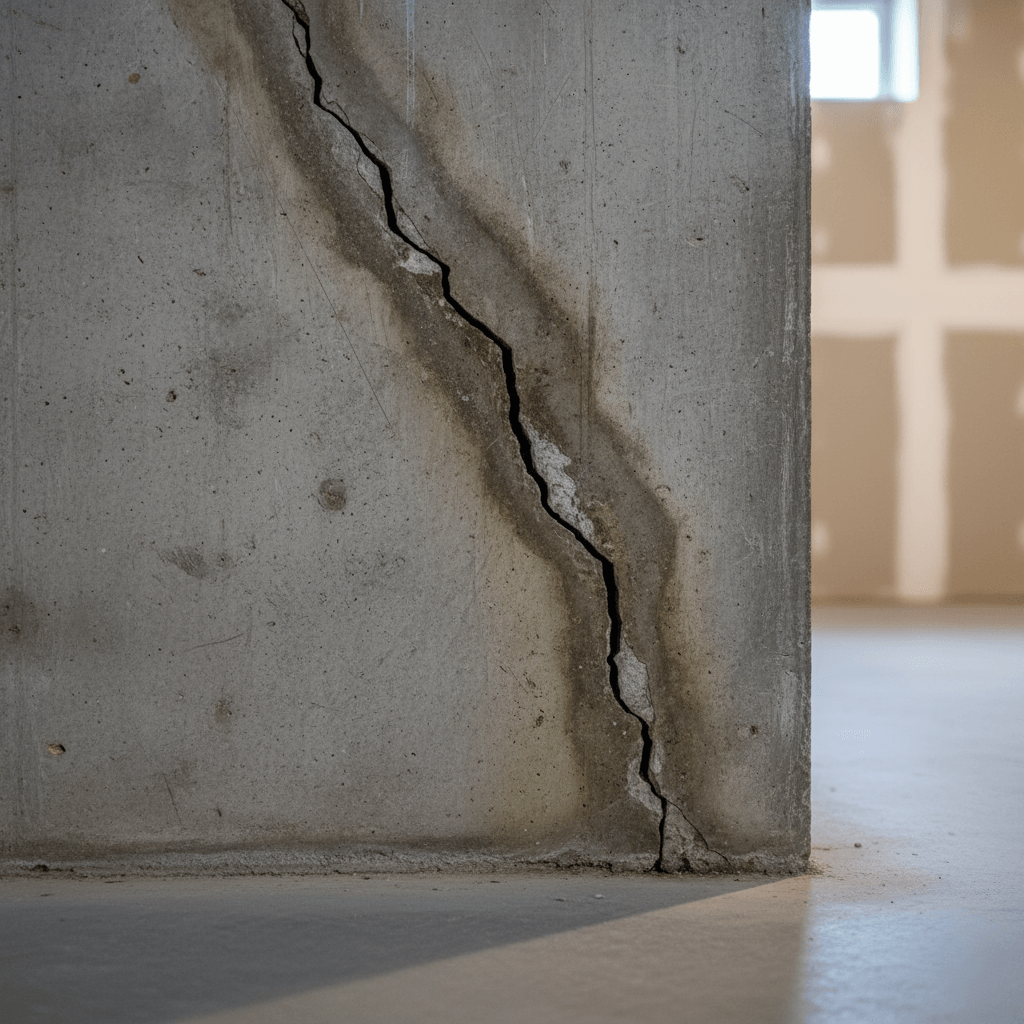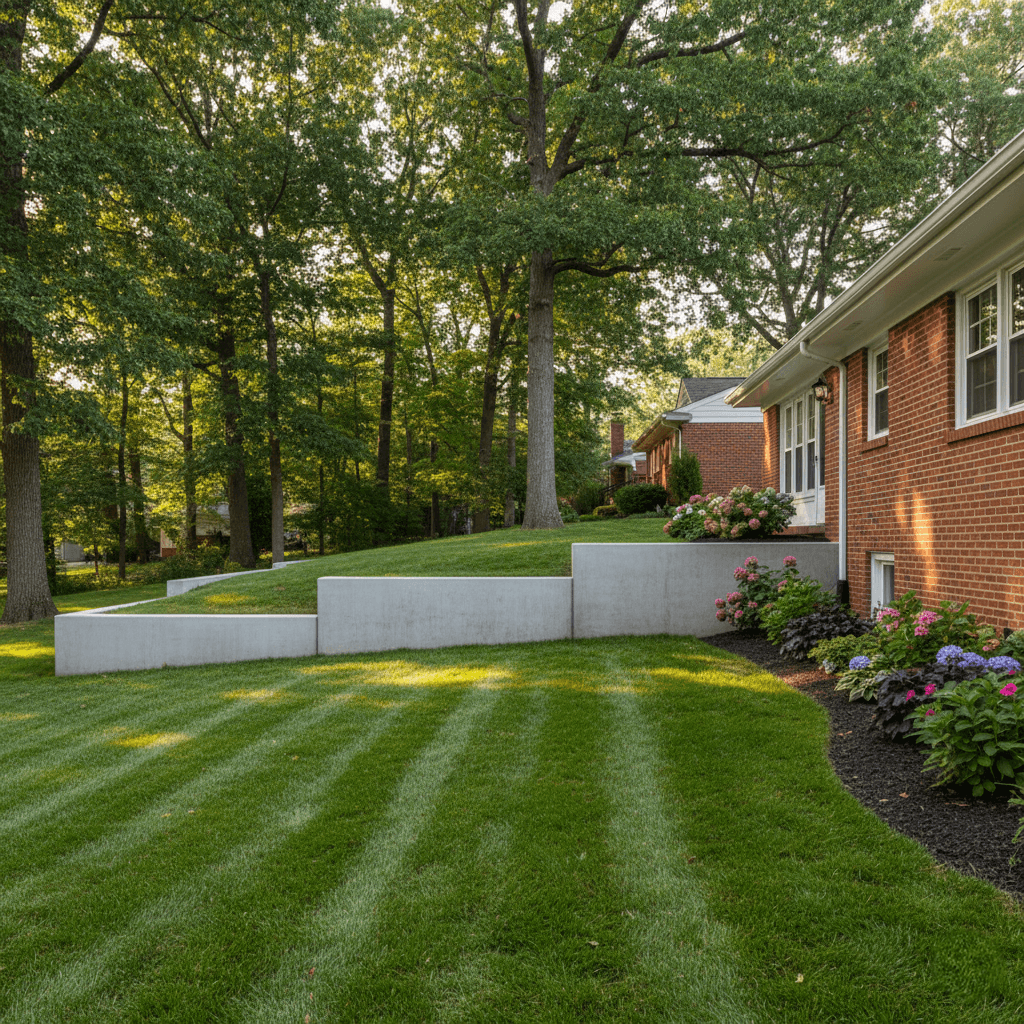St. Louis Concrete Works - Frequently Asked Questions
If Your Question Is Not Answered Here Drop Us A Line
What does professional concrete driveway installation cost per square foot in St. Louis?
Professional concrete driveway installation in St. Louis, Missouri, typically ranges from $8 to $15 per square foot, reflecting the region’s moderate climate challenges and competitive Midwest market conditions. Standard 4-inch reinforced installations cost $8 to $11 per square foot, while premium 6-inch driveways with decorative finishes reach $13 to $15 per square foot. Missouri’s moderate freeze-thaw requirements necessitate air-entrained concrete, which increases material costs compared to southern states. The competitive metropolitan market helps control pricing, though seasonal weather constraints and potential severe weather events can affect project scheduling and costs.
How do complete replacement costs compare to driveway resurfacing in St. Louis?
Full driveway replacement in St. Louis costs $10 to $17 per square foot, while professional resurfacing services range from $4 to $9 per square foot. Replacement involves complete demolition, excavation below Missouri’s frost line (30 inches), proper drainage installation for the region’s variable precipitation, and new concrete meeting state standards for freeze-thaw resistance. Resurfacing applies a bonded overlay over structurally sound existing concrete. Missouri’s moderate freeze-thaw conditions make resurfacing viable when underlying concrete remains intact, offering cost-effective renovation for homeowners with sound existing foundations.
What price difference exists between decorative stamped concrete and standard broom-finish patios in St. Louis?
Standard broom-finish patios in St. Louis cost $9 to $14 per square foot, while stamped concrete installations range from $15 to $24 per square foot for professional work. The premium reflects specialized labor for pattern creation, color integration systems, and protective sealing required for Missouri’s variable climate conditions. Popular St. Louis patterns include brick, natural stone, and traditional geometric designs that complement the city’s historic and contemporary architectural styles. Both finishes must accommodate Missouri’s freeze-thaw cycles through proper air entrainment and joint design for long-term durability.
What factors influence concrete pricing per cubic yard in St. Louis, including delivery and special additives?
St. Louis ready-mix concrete costs $110 to $150 per cubic yard, with short-load fees of $25 to $40 per yard for deliveries under 8 cubic yards, pump truck charges of $275 to $475 per job, and delivery fees of $4 to $7 per mile beyond 25 miles from local plants. Air entrainment required for Missouri’s freeze-thaw conditions adds $5 to $12 per yard. Winter accelerators cost an additional $10 to $18 per yard during cold months, while hot-weather retarders add $6 to $12 per yard during summer. The competitive Midwest market helps moderate pricing, while Missouri’s moderate climate requirements add reasonable additional costs.
What thickness works optimally for St. Louis driveways?
Five-inch thickness provides optimal performance for St. Louis driveways, effectively handling Missouri’s moderate freeze-thaw cycles, thermal stress, and clay soil movement while meeting building code requirements. Four-inch thickness meets basic code requirements but may develop stress cracks during severe winters or clay soil movement. Six-inch thickness suits commercial applications or areas with frequent heavy traffic, but increases costs substantially. Most St. Louis contractors recommend a 5-inch thickness with proper reinforcement as the ideal balance for residential applications in Missouri’s moderate climate conditions.
What drainage slope ensures proper water management for St. Louis concrete?
St. Louis driveways require a minimum of 1/4 inch per foot slope (2%) for adequate drainage, with 3/8 inch per foot (3%) recommended for Missouri’s variable precipitation patterns, including spring storms and winter snowmelt. Patios need a minimum of 1/8 inch per foot slope away from structures to handle the region’s moderate to heavy precipitation events effectively. Maximum slopes of 8% prevent finishing difficulties while ensuring proper water runoff during Missouri’s variable weather events. Proper drainage design is important in St. Louis due to clay soils and the potential for localized flooding during severe weather events.
When are concrete overlays appropriate for existing surfaces in St. Louis?
Overlays work well in St. Louis when existing concrete remains structurally sound with minimal freeze-thaw damage and settlement issues. Missouri’s moderate climate conditions generally favor overlay success when properly installed with appropriate materials and surface preparation. Clean surfaces thoroughly, etch with acid solutions, and use bonding agents rated for Midwest freeze-thaw conditions. A minimum 2-inch overlay thickness is recommended for Missouri conditions, with 3 inches providing better long-term durability and freeze-thaw resistance in the region’s variable climate environment.
What temperature restrictions affect concrete placement in St. Louis?
St. Louis concrete pours should avoid temperatures below 40°F or above 90°F to ensure proper curing and long-term performance. Missouri’s moderate climate requires cold-weather precautions from December through February, including heated materials and insulated covering when temperatures drop significantly. Hot-weather precautions apply during the summer months with retarders and strategic scheduling to avoid peak afternoon temperatures. Optimal placement temperatures of 60 to 80°F ensure proper hydration in Missouri’s generally moderate humidity environment with seasonal variations.
What is the concrete curing timeline for traffic loading in St. Louis's climate?
Under typical St. Louis conditions, concrete can safely support foot traffic after 24 to 48 hours and light vehicles after 7 to 12 days in Missouri’s moderate climate. The Midwest environment generally provides favorable curing conditions with adequate humidity and moderate temperatures during most seasons. Extended moist curing for 7 to 14 days helps achieve maximum strength in variable climate conditions. Winter conditions may extend curing timelines, while summer heat may accelerate early strength gain but require protection from rapid moisture loss.
When should new concrete be sealed in St. Louis, and which sealer type offers optimal performance?
Seal new St. Louis concrete 45 to 90 days after placement, allowing proper curing and surface preparation in Missouri’s moderate climate conditions. Penetrating sealers formulated for Midwest conditions provide excellent protection against freeze-thaw cycles and moderate moisture exposure while allowing vapor transmission. Film-forming sealers work well in Missouri’s moderate precipitation environment but require careful selection for freeze-thaw resistance. Apply sealers during mild weather conditions (60 to 80°F) with low humidity, and reapply every 3 to 4 years depending on exposure conditions.
What represents normal versus problematic cracking in St. Louis concrete?
Hairline shrinkage cracks under 1/16 inch are normal in St. Louis due to Missouri’s thermal cycling, moderate freeze-thaw conditions, and clay soil movement. Cracks exceeding 1/8 inch in width, showing vertical displacement, or allowing water penetration require professional evaluation and potential repair intervention. Structural concerns may result from freeze-thaw damage, clay soil movement, or inadequate reinforcement for Missouri’s building code requirements. Document crack patterns and monitor for changes, as soil movement or freeze-thaw cycles can cause crack propagation requiring engineering assessment.
Are permits and HOA approvals required for St. Louis concrete work?
St. Louis requires building permits for most concrete work, including driveways, substantial patios, and structural concrete installations within city limits. Contact the St. Louis Building Division at (314) 622-3386 for specific permit requirements, current fee schedules, and inspection procedures. Permit fees typically range from $100 to $350 based on project scope and complexity. Many St. Louis neighborhoods have HOA architectural review standards that affect concrete color, texture, and design elements. Obtain complete HOA approval before beginning work, as violations can require expensive modifications to achieve compliance with community design standards.
What Missouri and St. Louis codes govern concrete thickness, slope, and reinforcement requirements?
St. Louis enforces the Missouri State Building Code with local amendments for concrete construction in the moderate climate region. Residential driveways require a minimum 4-inch thickness with appropriate reinforcement and proper slope for drainage during precipitation events. Footings must extend below Missouri’s 30-inch frost line and accommodate moderate clay soil movement. Air entrainment is required for freeze-thaw protection, and all concrete work must meet ACI 318 standards as adopted by Missouri, with considerations for moderate freeze-thaw conditions and soil movement.
What inspection requirements apply to St. Louis concrete projects?
St. Louis mandates inspections for permitted concrete work, including footing inspection before placement, reinforcement and form inspection, and completion inspection. Schedule inspections at least 24 hours in advance through the St. Louis Building Division at (314) 622-3386. Inspectors verify Missouri Building Code compliance, including thickness measurements, air entrainment verification, reinforcement placement, and slope requirements. Work cannot proceed without proper inspection approval, and failed inspections require corrections and re-inspection scheduling with associated fees and potential project delays.
What should I ask concrete contractors in St. Louis about qualifications and guarantees?
Verify that St. Louis concrete contractors maintain current Missouri contractor licenses, comprehensive general liability insurance with minimum $1 to $2 million coverage, and workers’ compensation insurance. Request 4 to 6 recent local references with complete contact information and photographs of completed projects demonstrating quality workmanship in Midwest climate conditions. Warranties should cover workmanship defects for 2 to 3 years and structural issues for 3 to 5 years minimum. Obtain detailed written estimates specifying Missouri Building Code-compliant mix designs, air entrainment requirements, reinforcement details, thickness specifications, and finishing requirements. Confirm their understanding of Missouri’s moderate freeze-thaw conditions, clay soil considerations, St. Louis permit processes, and proper installation techniques for the region’s variable climate and soil characteristics.



